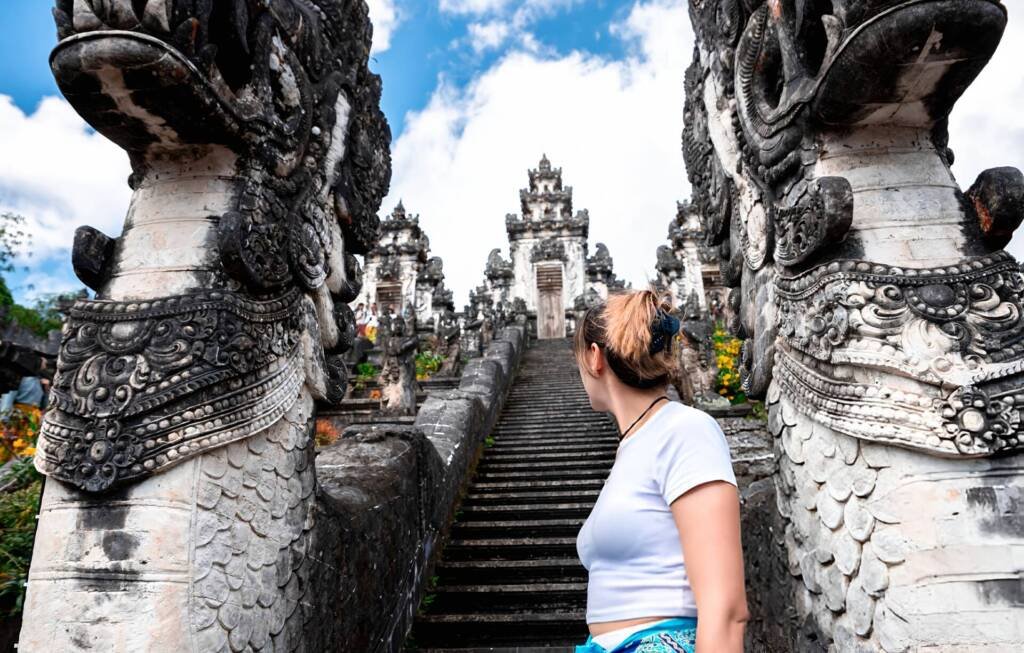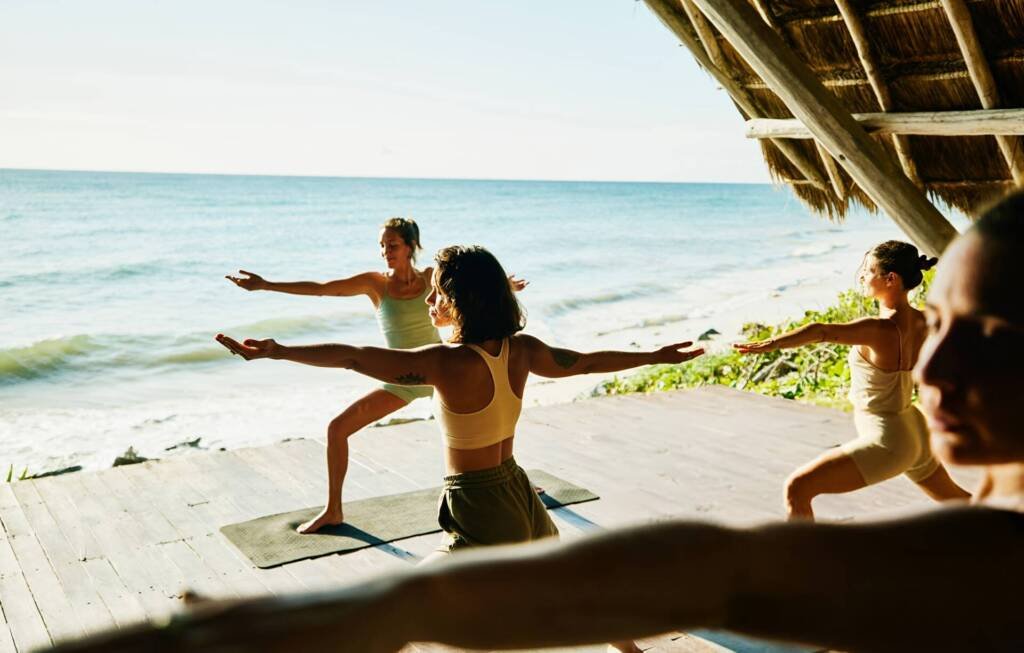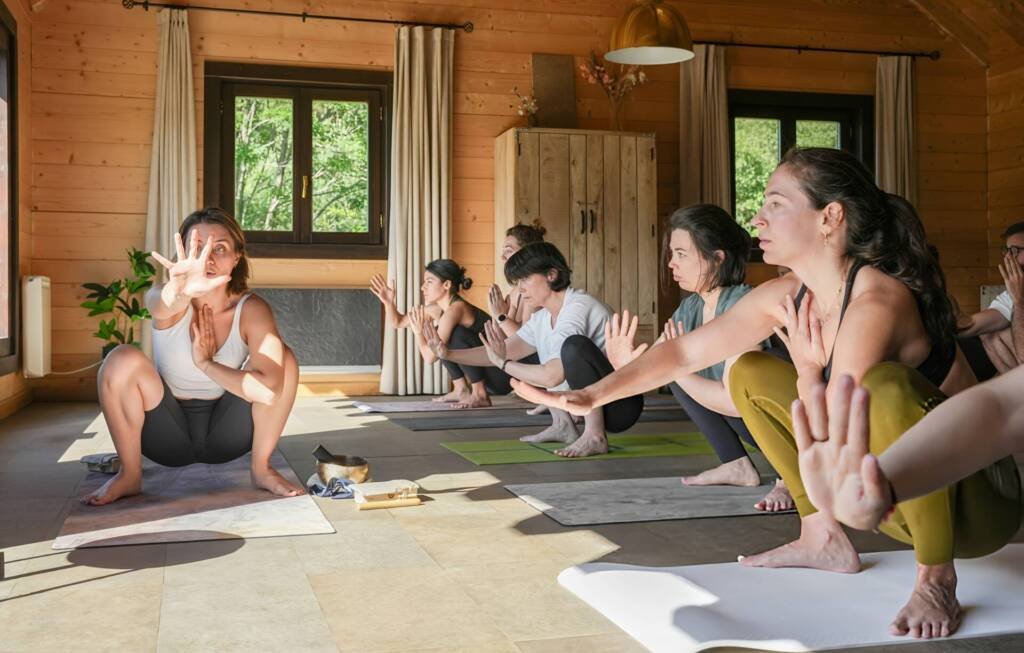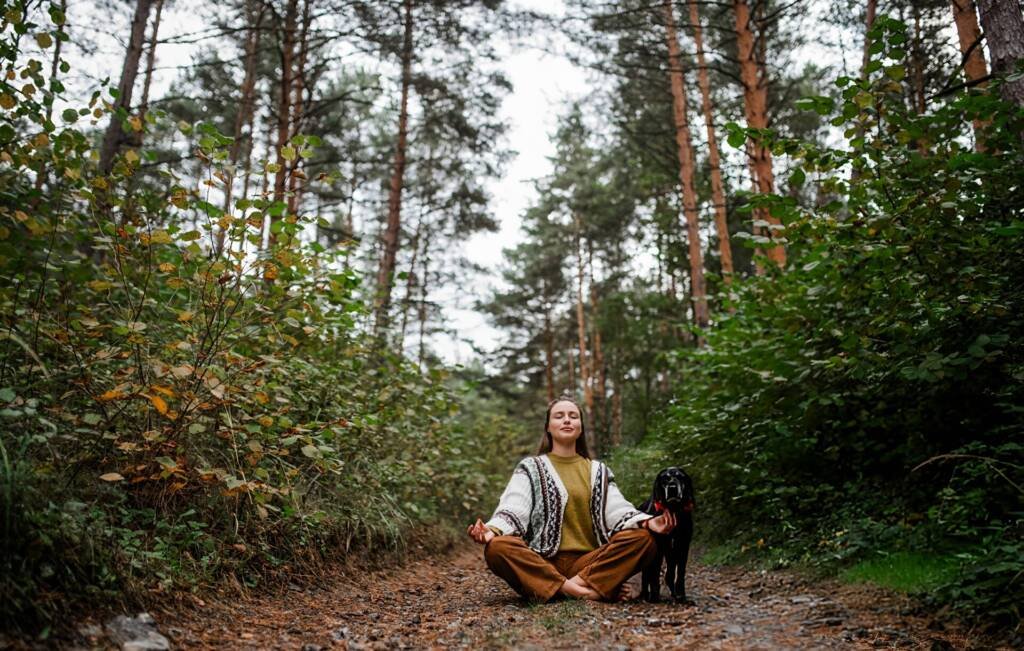Over the past few years, the world has seen an explosive rise in wellness tourism. Spiritual retreats have gained significant traction among its many facets as more people seek rest, purpose, and self-discovery in serene and remote locations.
Table of Contents
Globally, the wellness tourism industry is projected to reach $1.3 trillion by 2025. A substantial part of this boom stems from retreats that promise life-changing experiences through meditation, mindfulness, and detox practices. But are these spiritual retreats genuinely transformative for participants, or are they becoming another wellness fad driven by marketing tactics?
If you’re a wellness enthusiast or someone seeking a more profound connection to yourself, this post will help uncover whether spiritual retreats are truly a good thing. We’ll address both the benefits and criticisms while exploring whether one might be the right choice for you.
What Are Spiritual Retreats?

Spiritual retreats are all about taking a step back from the chaos of daily life and carving out time to focus on yourself and your personal growth. It’s not your typical vacation of lounging by the pool or snapping pictures of landmarks. Instead, these retreats are thoughtfully designed to help you recharge your mind, body, and soul through peaceful settings and meaningful activities. Many retreats include things like:
- Mindfulness practices: These can encompass activities such as guided meditation sessions, mindfulness exercises, journaling prompts to explore thoughts and emotions, and specialized breathwork techniques to help calm the mind and center yourself. These practices are often at the heart of spiritual retreats, assisting participants in reconnecting with the present moment.
- Yoga and movement: Many retreats offer various yoga disciplines, such as Vinyasa, Yin, or Hatha yoga, to harmonize the body and mind. Some may also include other forms of mindful movement like tai chi or qigong to promote physical and energetic balance.
- Cultural or spiritual teachings: Retreats often draw inspiration from global spiritual traditions, incorporating rituals, ceremonies, or ancient wisdom rooted in specific faith traditions, indigenous practices, or holistic philosophies. These teachings help participants explore new perspectives on life and spirituality.
- Nature immersion: Many spiritual retreats embrace the healing power of nature, offering activities such as forest bathing (immersing yourself in the forest’s energy), tranquil hikes in scenic landscapes, or quiet moments of solitude in secluded natural settings. The natural world becomes a partner in the process of reflection and renewal.
- Detoxes and resets: Some retreats focus on cleansing both the body and mind, offering plant-based meals, juice therapies, or detox programs to support physical well-being and encourage a fresh start. These experiences are often paired with holistic guidance to align the body’s health with spiritual goals.
For many, the true appeal of these retreats lies in their intentionality. Unlike typical leisure travel, spiritual retreats are crafted to promote deep reflection, meaningful connection (with oneself and with others), and personal growth.
They offer a chance to step back from modern life’s chaos and gain a deeper understanding of yourself in a peaceful, spiritually focused environment. Whether you seek clarity, healing, or a break, these retreats provide a transformative space to align your inner and outer worlds.
Popular Retreat Locations

Destinations such as Bali, Sedona, and India’s Rishikesh have become synonymous with spiritual retreats, offering iconic and picturesque backdrops to disconnect from the fast-paced modern world. With its lush jungles, serene beaches, and ancient temples, Bali offers experiences ranging from mindfulness workshops to traditional Balinese healing rituals. Sedona, Arizona, renowned for its stunning red rock formations and powerful energy vortexes, attracts seekers for energy healing, meditation, and outdoor spiritual adventures.
Meanwhile, Rishikesh, nestled in the foothills of the Himalayas and known as the world’s yoga capital, provides opportunities for yoga teacher training, meditation retreats, and immersion in ancient Indian spiritual traditions. These destinations invite travelers to step away from daily stresses and deepen their well-being through transformative and unique experiences.
The Growing Popularity of the Wellness Retreat Industry

The rise of spiritual retreats isn’t coincidental—it reflects a broader trend within the booming wellness tourism market.
More people are seeking opportunities for self-care and holistic health. A fast-paced lifestyle, overstimulation from technology, and burnout lead many to long for a mindfulness reset. All of these factors have pushed spiritual retreats into the mainstream.
For example:
- A report by the Global Wellness Institute highlights a shift toward transformational travel, where visitors seek purpose and personal growth rather than surface-level sightseeing.
- Google Search Trends show a steady rise in queries for “mindfulness practices” and “spiritual retreats” over the last five years.
This growth demonstrates a societal hunger for self-discovery and the growing commercial interest in targeting wellness enthusiasts.
How Spiritual Retreats Can Be Transformative?

At their best, spiritual retreats offer immense benefits by providing a dedicated space for participants to disconnect from the noise of everyday life and experience profound, life-altering shifts in their perspectives and mental well-being. These retreats create an environment where personal growth, relaxation, and introspection can flourish.
Proven Benefits
- Mental clarity and focus: Engaging in meditation and mindfulness practices and stepping away from the constant demands of daily life allows the brain to reset, fostering sharper thinking and renewed creativity. Many participants report returning home with a clearer sense of purpose and direction.
- Stress reduction: Activities like yoga, breathwork, and journaling are shown to significantly lower cortisol levels, the primary stress hormone. This helps participants feel more grounded and resilient, even after the retreat ends.
- Physical benefits: Clean eating, detox programs, and a focus on nutrition often help improve digestion, energy levels, and oxidative repair, promoting overall physical well-being. Some retreats even incorporate activities like hiking or spa treatments to nurture the body further.
- Deep connections: Sharing transformative experiences with like-minded individuals builds strong, lasting bonds. These connections often go beyond the retreat, creating a supportive and inspiring network that participants can lean on in their personal journeys.
Spiritual retreats are more than just a getaway—they are a chance to step back, realign, and return to daily life with a renewed sense of balance and vitality.
Real Transformations

For example, a participant from a mindfulness retreats shared, “The two weeks I spent focused on meditation gave me tools to tackle overwhelming emotions at work. I came back with a clearer mind and open heart.” They noted how the structured daily meditations, combined with guidance from experienced instructors, provided both immediate relief and long-term coping strategies for managing stress.
Research backs this up. Harvard studies on meditation retreats show measurable improvements in stress resilience and emotional regulation that can last for weeks or even months after participants return home. These studies highlight how taking time away from daily pressures to focus on mindfulness can create lasting mental and emotional benefits, equipping individuals to handle challenges better in their personal and professional lives.
The Power of Environment
Many retreats’ seclusion and breathtaking landscapes also amplify their impacts, creating an atmosphere that encourages deep relaxation and personal growth. Imagine meditating during sunrise on a tranquil beach in Bali, with the sound of gentle waves and the soft glow of the morning light surrounding you.
Or picture yourself journaling while watching the vibrant hues of a sunset stretch across the vast Arizona desert, with its striking red rock formations as your backdrop. These serene and carefully chosen settings inherently foster inspiration, introspection, and a sense of connection to nature, making them ideal for self-discovery and rejuvenation.
The Flip Side: Are Spiritual Retreats Becoming a Wellness Fad?

Despite their promise, critics argue that not all spiritual retreats are created equal. Beneath the surface of the wellness industry’s polished image may lie deeper concerns that are often overlooked. While retreats can offer a meaningful escape and personal growth, some industry practices raise important questions about access, authenticity, and intent.
Concerns and Critiques
- Commercialization of Spirituality
What once began as deeply rooted, authentic practices has, in many cases, been transformed into a commodified trend. Exclusive retreats charging thousands of dollars have made spiritual healing feel like a luxury rather than a universal opportunity. This raises pressing questions about who can truly access the benefits of these experiences. Are they only for the privileged few who can afford the hefty price tags?
- Prioritizing Profit Over Purpose
Occasionally, retreat organizers appear more focused on crafting glossy marketing campaigns than delivering authentic or meaningful experiences. These retreats often promise life-changing transformations but fail, offering only superficial activities lacking depth or true impact. The emphasis on profit can overshadow the original purpose of healing and self-discovery, leaving participants feeling disillusioned.
- Status Symbols, Not Self-Discovery
For some attendees, retreats have become less about finding inner peace and more about outward appearances. The rise of social media has turned many retreats into opportunities for Instagram-worthy photo ops rather than genuine spiritual exploration. A photo by the infinity pool in Sedona or a snapshot during a yoga session can sometimes take precedence over the actual journey of self-reflection and growth.
Red Flags to Watch For
Before booking a retreat, it’s important to stay vigilant. Be wary of programs with vague agendas that lack clear outcomes or intentions. Watch for retreats led by facilitators who lack proper training or credentials. Some programs also make grandiose promises of instant transformation, which can often be unrealistic and misleading. Authentic retreats should foster a safe, inclusive, and supportive space for growth, not overpromise or exploit participants’ hopes.
Spiritual retreats can be powerful tools for healing and self-discovery, but looking beyond the surface is essential. By approaching the wellness industry with critical awareness, participants can ensure their chosen experiences truly align with their goals and values.
How to Know If a Spiritual Retreat Is Right for You?

Is a spiritual retreat the right choice for you? Taking time to reflect and recharge can be life-changing, but it’s essential to ensure it aligns with your needs and expectations. Here are some steps to help you decide if a retreat is the right fit and how to prepare for the experience.?international.
Your Retreat Checklist
- Define your goals: What do you hope to achieve? Whether it’s mindfulness, relaxation, personal growth, or simply a break from the hustle of daily life, having clear intentions will help you choose the right retreat. Think about what you need most at this point in your life.
- Research facilitators: Look into the teachers or leaders running the retreat. Their experience, qualifications, and testimonials from past participants can give you insight into the program’s quality. A skilled facilitator can make all the difference in creating a transformative experience.
- Set a budget: Spiritual retreats can vary significantly in cost, from local weekend programs to luxurious international experiences. However, a higher price doesn’t always guarantee a better experience. Decide what you’re willing to spend and look for options that fit your financial comfort zone.
- Explore retreat types: Each retreat offers something unique. Meditation retreats can help calm the mind and improve focus, yoga retreats combine movement with mindfulness, detox retreats focus on cleansing the body, and creative retreats encourage self-expression. Take time to reflect on what type of experience resonates most with your personal needs.
- Location matters: The setting can significantly impact your retreat experience. Do you see yourself meditating on a tropical beach, hiking through lush forests, or finding stillness in the peaceful desert? Consider the environment that will inspire and relax you the most.
If the idea of a long, immersive program feels overwhelming, consider starting small with a local weekend retreat. This can give you a taste of the experience without the larger time or financial commitment, helping you decide if a more extended retreat is right for you in the future.
Alternatives to Spiritual Retreats

For those seeking mindfulness without a significant financial investment, there are plenty of simple and effective alternatives to explore:
- Daily Meditation: Start small with just 5-10 minutes a day, using free apps like Insight Timer or Headspace. These apps offer a variety of guided sessions tailored to different needs, from stress relief to better sleep, making it easy for beginners to develop consistent habits.
- Forest Bathing: Take a mindful walk in nature, whether in a park, forest or even your backyard. The practice of “forest bathing” encourages you to slow down, breathe deeply, and immerse yourself in the natural world’s sights, sounds, and smells, reducing stress and enhancing focus.

- Local Yoga Classes: Visit a nearby yoga studio or community center offering affordable drop-in classes. Yoga not only helps improve flexibility and strength but also creates an opportunity to meet like-minded individuals and build meaningful connections.
- Home Retreat Days: Dedicate a day at home to disconnect from technology and focus on self-care. Journal your thoughts, practice mindfulness exercises, or simply reflect in a quiet space. To enhance the experience, create a calming environment with soft lighting, soothing music, or aromatherapy.
Even short-term and cost-effective options like these can help you foster meaningful growth and bring mindfulness into your daily life.
What Does the Future Hold for Spiritual Retreats?

Looking ahead, spiritual retreats may continue evolving to balance authenticity and accessibility, adapting to the needs of modern participants:
- Technology’s Role: Virtual retreats will likely grow in popularity, providing accessible, global experiences without the need for expensive travel. These online options could include live-streamed meditations, interactive workshops, and virtual community gatherings, allowing people from various backgrounds to participate from the comfort of their homes.
- Cultural Shifts: With a growing emphasis on mental health and mindfulness, the demand for spiritual retreats is expected to increase further. More individuals are seeking escape from the stresses of daily life, using retreats as a way to reconnect with themselves, find clarity, and foster long-term emotional well-being.
- Sustainability Trends: As awareness of environmental issues grows, retreat providers may adopt eco-conscious practices such as using renewable energy, sourcing organic food, and hosting in sustainable facilities. This alignment with global values could make these retreats even more appealing to conscientious participants.
The challenge ahead will be maintaining the authenticity of these experiences, ensuring they remain rooted in genuine spiritual practices and not diluted into mere marketing strategies aimed at capitalizing on the trend. Balancing innovation with tradition will be key to their continued success.
Conclusion
Spiritual retreats hold immense potential as tools for transformation—when chosen wisely. At their best, these experiences offer profound healing, clarity, and renewal, providing a space to disconnect from the noise of daily life and reconnect with your inner self. However, it’s important to remember that retreats are not one-size-fits-all, and not all programs deliver on their promises. Each retreat is unique, catering to different practices, belief systems, and personal goals.
Instead of viewing retreats as quick-fix solutions, approach them as sacred opportunities for growth and self-discovery. Take time to evaluate what you seek—whether it’s peace, self-awareness, or connection—and do thoughtful research to ensure the retreat aligns with your unique needs and aspirations. Consider factors such as the retreat leader’s qualifications, the program’s focus, and whether the environment feels right for your journey.
Even if long retreats don’t fit your schedule or budget, the principles they embody can transform your everyday routine. Whether on a retreat or practicing mindfulness at home, the most meaningful spiritual changes happen from within. They require patience, openness, and a willingness to look inward.
Have you ever been to a spiritual retreat? What was your biggest takeaway? Please share your experience in the comments below or explore our Top 5 Mindfulness Practices to create moments of peace and reflection daily.





